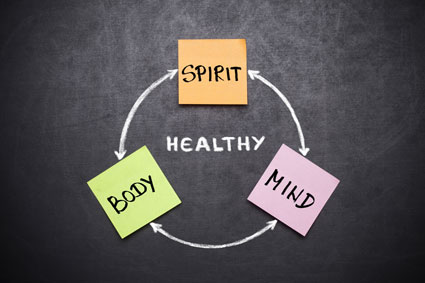?
If you are going to be a journalist, you are going to have to be able to determine what qualifies as newsworthy, and what doesn't. Now, it may be true that, with so many media outlets there seem to be fewer guidelines, but the fact is there are some basic parameters to what falls within the category of news, and it should become second nature to the writer over time.
We can agree that the world is agog with a mishmash of events that occur 24/7. The journalist's responsibility is to take this chaos and add structure to it, creating neatly organized articles for public consumption. When and where the information appears depends on the journalist. What is most important to the writer is having the ability to identify what comprises news, and what doesn't.
Remember, the journalist is the eyes and ears of the public, and your responsibility is to bring information you believe is germane to their attention. The way you distinguish whether information is newsworthy or not is the very same way the public would do it. If you believe the story is interesting � the public probably will, too. Of course, you must bear in mind the audience to whom you are speaking. For example, while it is interesting that a high school senior got into Harvard University, that might not be something the public would care to read about, unless you are writing an article for a community newspaper, or the student had overcome some type of adversity in order to gain acceptance. Perhaps she worked two jobs while attending high school; perhaps her family had only recently moved to the United States and she was an English as a Second Language student; or she had suffered from a physical or emotional setback that made her success inspirational. Again, if you find it interesting � it is likely that the reading public will, as well.
Even if you don't find the news personally interesting, and you are using that as your measure for determining the worthiness of a story � that does not mean it isn't interesting. As a journalist, you start with yourself and work outward. Would the community find it interesting? Would it be of concern to a particular segment of the population?
Next, a driving question about whether a story is newsworthy is if it is "new." People love to read about the latest events, first and foremost. Of course, there are stories that will remain forever germane in the hearts and minds of the reader. For example, conspiracy theories about the Kennedy assassination find their way to the front pages of the papers with some regularity. That is because it is still a topic of interest � particularly if it offers a new idea. But, information that is yesterday's news is exactly that � yesterday's news. And without a spin or a reason to continue to report it � there is no reason to report it. The news simply must be new.
Another driving factor in determining the newsworthiness of an item is if it is unusual. People love to read about unusual events or occurrences. It peaks their interest. Ordinary behaviors do not interest the individual. Of course, we are all thankful for the ordinariness of life � it gives structure to our existence. But, the unusual is what captivates us. For example, people hardly bother themselves with thoughts about pigs. However, a recent story appeared in the news that claimed one country is developing a certain genus of pig that is miniature and would make a great pet. Now, that is unusual, and interesting, and newsworthy. Perhaps not to everyone, but to enough people that the story was written.
That's another caveat of the writing business. You're not going to please all of the people, all of the time. There are few things that would capture the interest of every person out there in the reading public. Perhaps, if you were the first to report the landing of a UFO on the front lawn of the White House, you might get the attention of the world public. Short of that, people are not all paying attention at the same time to the same thing. Journalists like to be on the lookout for the unusual, though. After all, who doesn't want to be the source of the next water cooler topic of conversation? And you just never know what could capture the public's imagination; they tend to be a fickle lot, and hard to impress anymore. However, if you stick with "unusual" as a yardstick for determining whether something is newsworthy or not � well, you probably can't go wrong.
Still a third measure of whether something is newsworthy or not is if it is significant. Significance is assessed on an individual basis often times, but it can also be determined along other parameters. For example, a recent chemical spill in a river out west might not affect the greater population of the United States, yet it was significant to many, despite our distance from the spill, for several reasons. First, it was caused by the very agency charged with protecting the environment, and second, the environment is an issue that continues to dominate the news because, in the end, it is significant to all of us. We all live on this earth, we all wish to enjoy life, and hope that the world is a safe and healthy place for our children, and their children. So, significance is relative. Some issues are significant to only a few, others to the many. The journalist learns how to assess this and uses it to drive their writing.
Another condition of newsworthiness is whether the subject of the story is about people. People love to read about other people. Unfortunately, most people-centered news that captures the interest of the reader is disaster-driven. If an individual or group of people experience a calamity, you are sure to read about it for several days on end, until all aspects of the story have been milked ad nauseam and the public is ready for something else. Of course, it would be great to be able to say that we have a higher calling � that we care about things other than other people's trials and tribulations � and to a certain extent that seems true. However, natural disasters, accidents, and problems that plague the lives of others are what make headlines every day. If people didn't want to read about it � readership would reveal this in the number of papers that are sold, news websites visited, and media programs aired. All of the statistics confirm that people are interested in reading about the troubles endured by other people.
That is not to say that you couldn't, or shouldn't, write about people from an inspirational point of view. As a journalist, you have to find your niche, your expertise � the natural place your "pen" wants to take you. After that, as they say, the rest is gravy.
Other Factors That Make Something Newsworthy
So far, we have learned that what makes something remarkable enough to write about is whether or not it is interesting, unusual, current, significant, and revolves around people. But there are other factors that can be taken into account, as well, when the journalist is mulling over whether or not to pursue a story.
One of these is the proximity of the story to where you are reporting. If you are writing from New York City, then the majority of people will not be interested in the current events of � let's say � New Zealand � unless there is a comparison that can be drawn, or the information affects the public in a particular way. For example, several decades ago there was a nuclear accident in Russia. Well, Russia is on the other side of the globe, so the relevance of the story could be questionable. Even so, a nuclear accident is of importance to every human being on the planet. The incident could generate dozens of stories � from "could it happen here," to "how did it happen," to "what was the loss of life and danger to those who survived?" So, proximity is important and should be factored into the writing, along with the other factors previously mentioned.
The journalist will also look for ways to develop a story so that the reader recognizes its personal impact to their own lives. The writer must understand that not every story will be of personal interest to every person, for the most part. So part of the job of a journalist is to determine at the start who the audience will be and write to that audience. If you are writing about an automobile recall, it might not be of interest to people who do not own that make or model, you might be able to broaden the scope by discussing recalls in general but then you could lose the original audience. Determine whose lives your story is intended to impact � and remain true to that audience when you are writing.
Where Do Journalists Get Their Information for News Stories?
Recognized journalists and news organizations get their news one of two ways: They either go out and beat the bushes to find it, or someone informs them of an event. Everybody wants to be in on the news today � that is the changing shape of the media. It's no longer about "them," it's about "us," People are anxious to capture images and inform reporting agencies of events that are occurring, because there is a good chance they will receive some monetary remuneration or public recognition for their information. Too, there are plenty of organizations and businesses that naturally keep the media in the loop � sending them press releases, newsletters, and other information that might find its way onto the front page somewhere.
Remember, it is the responsibility of the media to keep the public informed, so this type of information has its place. The journalist is expected to try to massage it to make it interesting, but it is necessary to publish it to ensure our society is aware of the basic facts.
Then there are those stories that journalists go out and find themselves. Perhaps they pursue something based on rumor, or uncover a tidbit of information that seems to be the edge of a much bigger story. The journalist finds the people and the events that should be shared with the reading public, and brings them to this forum. A journalist has a tendency to "go where no man has gone" in search of the truth.
The news itself comes from dozens of places and falls within a variety of categories. Conflict is a driver of journalism, as are disaster and tragedy. Conversely, progress and development, or the fortunes of the underdog, can be interesting, as well. All too many stories are written about crime, and people love to read about celebrities, entertainment, and money. Religion is newsworthy in many instances. Sex always captures the attention of readers, and health is another topic of interest. Who doesn't like to talk about the weather � or read about it; some journalists spend their professional lives in this milieu. Sports is an extremely popular subject for journalists and the artful will be able to milk a human interest story. From this list, alone, it is obvious that there is plenty of work out there for the budding and seasoned journalist. No journalist should be sitting around complaining that there's nothing to write about!
So remember to ask yourself these questions before putting pen to paper (or fingers to keyboards). Is the subject new and interesting? Is it unusual or significant, and does it center on people?
What Makes a Good Story?
Before leaving this subject altogether, there are a few other questions you, as a journalist, may ask yourself when mulling over the idea of an article � and they all address the subject of "what makes a good story?"
First, a good story captures emotions. Even newspaper articles that tend to report straight news find a way to insinuate the emotion of an experience on a personal level for the reader. It makes the article more interesting and relevant and more likely to be read. Most often a good story also has a strong central character � a person that the story revolves around. All good journalism provides the reader with context, so they can better understand the purpose and events that are being reported. A good story also offers ample details, so the reader can visualize the events in their mind. Good stories are also very often about some sort of conflict, and leave a reader feeling empowered by what they have read.
In the end, this article has provided the learner with all of the elements to determine what makes a story newsworthy and what makes a good story. We have also provided a listing of the many categories under which the news may fall. Now, it is up to you to take this information and decide how it fits with your goals as a journalist. What type of writing will you want to focus on � or will you choose several areas of expertise? What type of organization will you want to work for? Or will you freelance your newsworthy stories. There is still much to learn about journalism!


























